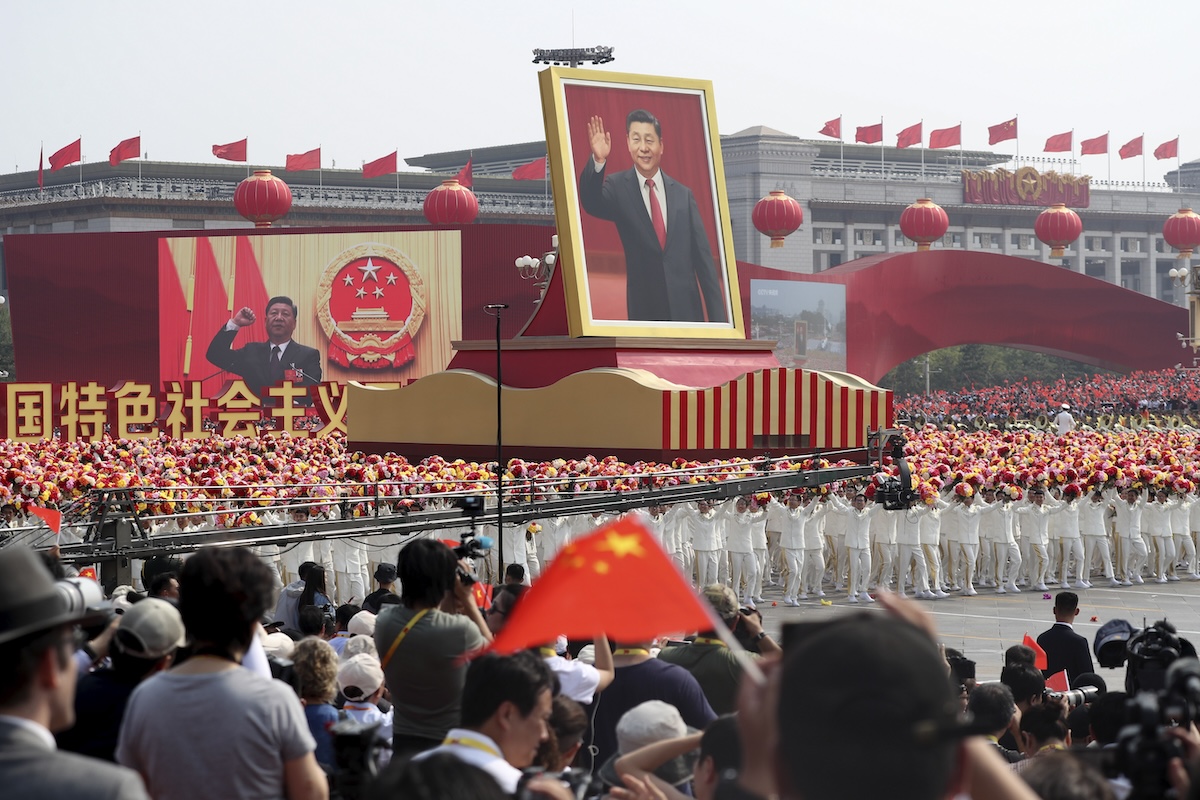Can relations between the United States and China avoid the brink?
Shortly after becoming president, Donald Trump invited his Chinese counterpart, Xi Jinping, to a festive visit at Mar-a-Lago in Florida. The summit appeared to be the start of a beautiful friendship. However, three years later Trump made hostility to the People’s Republic of China (PRC) and, more specifically, the Chinese Communist Party(CCP), the centerpiece of his reelection campaign.
Today Democrats and Republican agree on little other than the dire threat posed by Beijing. In response, they are avidly adopting Chinese policies, including protectionism, industrial policy, tech controls, and online bans. American policymakers routinely talk about containing the PRC and preparing for a new Cold War. And the struggle could heat up. The greatest international flashpoint may be Taiwan.
Yet Sinologists battle over the meaning of the latest political proclamations of a civilization that dates back thousands of years. What are Xi’s, the CCP’s, and the Chinese state’s ambitions? How dangerous is the PRC? There is far less certainty among American academics than among politicians.
Into this fray enter economist Ryan M. Yonk and prospective lawyer Ethan Yang and their new book, The China Dilemma: Rethinking US-China Relations Through Public Choice Theory. With Washington battling China over trade, technology, finance, diplomacy, and geopolitics, the authors fear that “there seems to be a bipartisan misunderstanding of the incentives driving Chinese policies.” Most everyone treats the PRC and other nations as “singular actors,” but “international relations tells us little about what motivates political leaders to posture, and how domestic events in China play a role.”
This is an important insight. Yonk and Yang acknowledge that culture, ideology, and strategy affect national behavior. These factors, however, “don’t provide much in terms of explaining individual policies.” For this, they insist, one should look to “economics and rational self-interest,” which apply to Chinese no less than American governance. Indeed, the authors believe that “viewing Chinese political behavior through the terms of public choice can significantly augment the ongoing discussion of US-China relations and Chinese domestic affairs.”
Strictly speaking, this approach is politically neutral. Focusing on the PRC’s domestic incentives rather than foreign objectives, however, probably diminishes the threat facing America. Nevertheless, Yonk and Yang hope their analysis provides “a more sober and complete conversation regarding China.”
Public choice economics earned James Buchanan the Nobel Prize in Economics in 1986. At base, it teaches that public actors, like their private counterparts, respond to economic incentives. Yonk and Yang contend “that understanding the incentives at play within a country can greatly aid in understanding how it acts on the world stage.”
For instance, the authors assess the records of the PRC’s top leaders, asserting “that the most powerful individuals in the CCP act in rational, self-interested ways.” So it is today, when “policy developments are narrowly tailored towards reasserting the power of the state and using brute political force to achieve desired outcomes in the economy.” Chinese challenges to the West involve more than “simply carrying out a grand scheme to uphold Chinese style Socialism and undermine Western values.” By assessing the interests being served, one can both predict where the Party is heading and “also craft more effective policies to confront China.”
The authors make a similar analysis regarding Xi’s steadily growing power. Even now there is evidence of opposition to his policies. If so, write Yonk and Yang, “Xi being able to convince officials at the highest level to support him demonstrates not only tremendous political capital but also suggests that the times may necessitate such action.” That is, his authority rests at least in part upon the consent of others who want him to reassert party control and provide leadership stability.
As for foreign policy, in the authors’ view “China does not act as a single, evil entity on the world state. Just like every country, it is led by self-interested and rational individuals who make their decisions within the structural context they occupy.” Thus, “the actions of the Chinese government are logically focused on domestic concerns first, and foreign affairs second.”
Of course, the U.S. and other friendly states may still dislike the resulting policy outcomes. However, the domestic context for PRC policies is likely to be substantially different from that in the West. For instance, Yonk and Yang contend that China “cannot be understood through the lens of the liberal world order,” “the Chinese leadership is not a monolith,” and “Chinese citizens are generally satisfied with the CCP.” Such factors, they argue, affect perceptions of threat, authority, and legitimacy. This doesn’t justify abhorrent Chinese policies past and present, argue Yonk and Yang, but “it is essential to consider how the CCP weighs costs and benefits as the regime actively attempts to construct a longstanding case for its right to rule all of China.”
Indeed, domestic causes are likely to yield foreign ends less ambitious than “world conquest” or such. Chinese officials likely desire their nation to have a position akin to that of America in the world, based on interest, not ideology. Explain Yonk and Yang: “If, or when, China achieves the military strength to enforce its own interests abroad, it will not be because the politburo devised a grand scheme to take over the world. Instead, it will be because China feels the need to protect trade routes” and more. Although controversies such as Taiwan will remain difficult to diffuse, it is necessary to focus on interest as well as ideology. All told, insist the authors, “China’s geopolitical statecraft follows a rational, opportunistic, and pragmatic pattern.”
Obviously, one should not be complacent in dealing with such a powerful authoritarian state. Mao Zedong demonstrated pragmatism when he turned to the U.S. as a counterweight to the Soviet Union. Post-Mao China welcomed Western engagement despite the disruptive consequences. And yet ideology also drove Mao toward highly destructive policies, such as the Great Leap Forward. Xi Jinping appears even more pragmatic than Mao—rejecting anything like the catastrophic chaos of the Cultural Revolution while cloaking his actions in communist rhetoric.
Still, Yonk and Yang conclude that “the goal of either side is not primarily world domination but a battle for influence.” If so, Americans can relax a bit. Strategic competition is inevitable but can be managed. “The big takeaway from this book should be that China’s leaders respond to incentives and have rational priorities.”
The course of U.S.-China relations will remain complicated, often tortuous, and sometimes dangerous. But using the insights of public choice economics might help keep relations generally stable and peaceful. And that may be the most we can hope for in the coming days.

